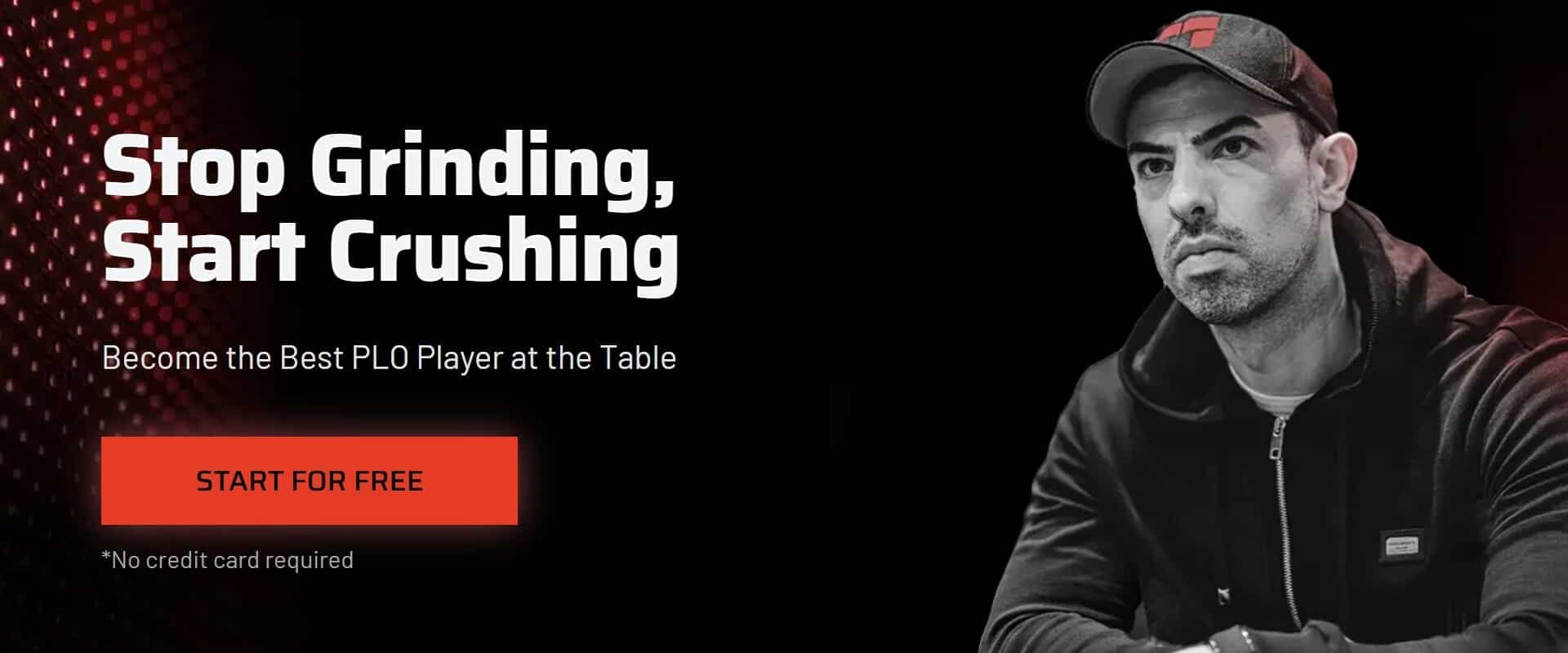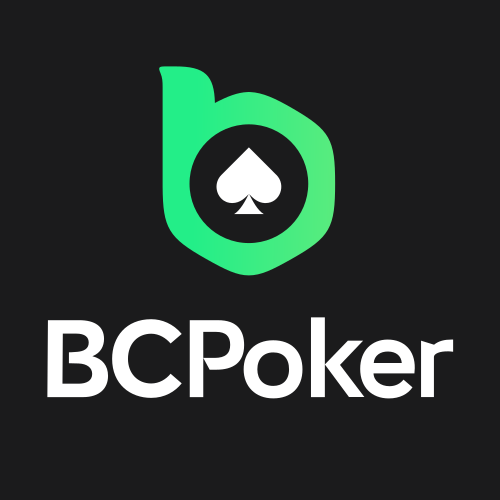PLO Tournament Strategy Guide: Crush Every Stage and Maximize ROI
Pot Limit Omaha tournaments are growing in popularity worldwide. Most PLO specialists still focus on cash games. Limited tournament opportunities create this focus. Players who master PLO tournament strategy gain significant advantages and will have a significantly higher ROI than the rest.
This guide explores essential PLO tournament strategy, including the best final table tactics to take down the win. Let’s dive in!
Find the best PLO action and rakeback deals here:
WPT Global
💎Free Tournament tickets up to $480
↩️30% Rakeback
🪙Free Casino Coin up to $100
🐟Soft Action
Phenom Poker
↩️up to 35% Rakeback
📈Play & Earn Site Equity
🐟Soft Action
🌐Network: Independent
Champion Poker
💳Cards & Crypto Accepted
🌐Network: iPoker
Choose the Right PLO Tournament
Tournament selection is the first critical step toward PLO tournament success. Tournament structure directly influences your strategic approach and potential edge.
Understand blind levels and stack depth
Stack size and blind levels determine your ability to make skillful plays. Deeper stacks provide greater edge against weaker opponents. When comparing tournaments, examine the stack-to-blind ratio after specific time intervals.
Quality tournaments typically begin with 50-100 big blinds. Anything around 200BB qualifies as a “deep stack” event.
Avoid turbo formats with shallow stacks
Turbo and hyper-turbo formats dramatically reduce your strategic edge. These fast structures quickly transition into all-in preflop scenarios. Post-flop play opportunities disappear where PLO skill advantages truly shine.
PLO tournaments with deeper stacks and gradual blind increases offer substantially more profitable situations.
Consider re-entry and bounty structures
Re-entry mechanics affect early-stage PLO tournament strategy decisions. Unlike rebuys, re-entries place you at a new table as a fresh entrant. This distinction becomes important when deciding whether to gamble against weaker players.
Bounty tournaments, especially mystery bounty events, require strategic adjustments. When calculating whether to call an all-in:
- Include the bounty’s chip equivalent in pot odds calculations
- Use average bounty estimates in mystery bounty formats
- Exact values remain unknown until awarded
Before registering, check if late registration costs you valuable deep-stack hands that could maximize your edge.
Master Early and Mid-Stage PLO Tournament Strategy
Early and middle stages offer the greatest edge opportunities. Deep stacks against inexperienced opponents create profit. Strategic decisions during these phases impact long-term profitability.
Play hands that can improve on later streets
Starting hand selection becomes more critical than cash games. Focus on hands with strong “nuttiness” and good connectedness. Prefer double-suitedness when possible. Big rundowns like JT98 and QJT9 create more opportunities. These hands make the nuts and “cooler” opponents. Small rundowns such as 3456 frequently lead to costly second-best straights.
Use limping and cold calling effectively
Limping serves a vital purpose in PLO tournaments. Strategic limping allows you to:
- Minimize variance with low and medium stacks
- See more flops against weaker opponents with weak ranges
- Avoid exposure to big stack three-bets
Cold calling becomes more profitable in tournaments than cash games. No rake on individual hands allows wider ranges. This creates opportunities to entice weak players behind you. They make losing overcalls.
Apply pressure as the last raiser
Being the last raiser provides significant advantages during middle stages. This position creates additional ways to win pots. Blinds increase making aggressive moves more valuable. Blind stealing and well-timed re-raises become crucial.
Position remains essential. Maintain selective aggression from late position. Play more cautiously from early position.
Avoid overvaluing weak draws or pairs
Many NLHE players overvalue disconnected high pocket pairs. K-K and Q-Q create problems in PLO. Weak flush draws in multi-way pots often lead to trouble.
PLO features close equity distribution. Playing marginal holdings frequently results in second-best hands at showdown. Avoid bluffing without fold equity. Most tournament players won’t make big folds with medium stacks.
Want to “up” your game? Head over PLO Mastermind, the best Pot Limit Omaha coaching site:

ICM and Final Table Adjustments
Independent Chip Model considerations become crucial near money bubbles. Tournament chips carry varying worth based on stack sizes. Prize structures affect chip value calculations.
Why ICM matters more in PLO than NLHE
ICM pressure impacts PLO tournaments more intensely than Hold’em. PLO’s inherent volatility creates closer equity distributions. Doubling your stack doesn’t double tournament equity in dollar value.
The last few chips in your stack hold more value. Individual chips in large stacks matter less. Many profitable chip equity spots become negative under ICM calculations.
How to pressure medium stacks near the bubble
Medium stacks face the most ICM pressure near bubbles. They have the most to lose from busting early. Big stacks can exploit this vulnerability effectively.
PLO tournament strategy for big stacks include:
- Opening wider ranges against medium stacks after short stacks fold
- Increasing opening sizes to win hands without showdown
- Targeting players who don’t understand ICM calculations
Medium stacks should avoid confrontations with larger stacks. Multiple short stacks remaining affects medium stack play dramatically. Nobody wants to bust while mini-stacks still exist.
Adjusting to payout structures at the final table
Final tables feature substantial pay jumps requiring strategic adjustments. Peak ICM pressure occurs on the bubble. Short stacks should focus on profitable jamming situations. Open-folding loosely wastes opportunities against other stacks. Middle stacks must be exceptionally selective. Folding often carries positive expected value when others might bust.
Big stacks should maintain aggression rather than folding. Folding into the final three squanders ICM advantages. The final table bubble typically has less significant ICM implications. This allows more aggressive play to build stacks.
Head over to PLO Mastermind to learn the best PLO tournament strategy:
Advanced Tactics and Tools
Serious PLO tournament players need advanced tools. Today’s competitive environment demands specialized resources. Utilizing these tools becomes crucial for consistent success.
Use PLO MTT sims to study preflop ranges
Modern PLO tournament strategy requires simulation software. PLO Mastermind’s PLO trainer offers tens of thousand of solver simulations. This tool covers 4-card and 5-card PLO scenarios.
Key features include:
- Four different preflop rake levels for tournament stakes
- Customizable quiz generators for knowledge testing
- Specialized MTT preflop solutions for 6-max, 8-max, and ICM scenarios
Additionally, we can also highly recommend PLO Solver. PLO Solver is a modern, cloud-based poker training tool where you can train to play GTO. It covers comprehensive simulations and has an incredibly user-friendly interface.

Register below with the bonus code PLO365 and save 20% on your next PLO Genius subscription.
Adjust strategy for bounty tournaments
Bounty tournaments alter PLO tournament strategy calculations fundamentally. Convert bounty to tournament chips when facing all-ins. Base conversion on bounty percentage of buy-in.
Bounty value increases require calling range expansion. Shoving ranges need adjustment. Opponents call wider than standard tournaments. Mystery bounty formats focus on chip accumulation early.
Track your leaks with session reviews
Systematic session review reveals gameplay patterns. Holdem Manager or PokerTracker identify equity-losing situations. Filter hands by specific scenarios. Study spots collectively rather than individually.
Focus on Expected Value in big blinds per 100 hands (EVbb/100). Use significant sample sizes (50,000+ hands). This metric offers more reliable insights than ROI alone.
Regular monthly or quarterly database reviews highlight strategic weaknesses. Address identified leaks through targeted study.
Conclusion
PLO tournament success requires systematic approach beyond basic poker skills. Tournament structure understanding creates significant advantages. Proper event selection with favorable blind progressions matters most.
Early and middle stages offer greatest stack-building opportunities. Hands with strong nuttiness and connectedness maximize post-flop advantages. Strategic limping and cold calling serve important tournament purposes.
ICM considerations change correct decision-making fundamentally. Chip value fluctuates dramatically near pay jumps. Medium stacks face the most elimination pressure. Stack size relative to field determines optimal approach.
Advanced tools separate serious players from the field:
- PLO MTT simulators for preflop range study
- Tracking software, for example DriveHud2, to identify leaks
- Mathematical adjustments for bounty tournaments
- Regular session reviews for improvement areas
These elements create a powerful framework for success. Players who apply these concepts reach final tables consistently. PLO tournaments reward those who play to win.
Proper preparation and strategic execution separate winners from strugglers. Master these fundamentals to crush PLO tournaments.
Find the best PLO action and rakeback deals here:
WPT Global
💎Free Tournament tickets up to $480
↩️30% Rakeback
🪙Free Casino Coin up to $100
🐟Soft Action
Phenom Poker
↩️up to 35% Rakeback
📈Play & Earn Site Equity
🐟Soft Action
🌐Network: Independent
Champion Poker
💳Cards & Crypto Accepted
🌐Network: iPoker
Key Takeaways
Master these essential PLO tournament strategy points to maximize your edge and profitability in this competitive landscape.
- Choose tournaments with deep stacks and slower structures – Avoid turbo formats; seek events starting with 50-100BB and 15-30 minute blind levels to maximize your skill advantage
- Focus on “nutty” connected hands in early stages – Play big rundowns like JT98 and QJT9 that can make the nuts, while avoiding small rundowns that create second-best straights
- Apply ICM pressure strategically near bubbles – Target medium stacks as a big stack since they face the most elimination pressure, while avoiding confrontations when you’re the medium stack
- Leverage advanced tools for continuous improvement – Use PLO MTT simulators like Vision GTO Trainer and track your sessions to identify leaks and optimize preflop ranges
- Adjust for bounty tournaments mathematically – Convert bounty values to tournament chips when calculating pot odds, and expand calling ranges proportionally to bounty size
The key to crushing PLO tournaments lies in playing to win rather than merely survive, exploiting structural advantages while maintaining disciplined bankroll management and continuous study habits.
Ready to improve your PLO tournament strategy skills?

FAQs
When selecting a PLO tournament, focus on events with deeper starting stacks (50-100 big blinds), slower blind level increases (15-30 minutes), and avoid turbo formats. Consider re-entry options and bounty structures as well, as these can significantly impact your PLO tournament strategy.
In the early and middle stages, prioritize playing hands with strong “nuttiness” and good connectedness. Utilize strategic limping and cold calling, especially against weaker opponents. Apply pressure as the last raiser, but avoid overvaluing weak draws or disconnected high pocket pairs.
ICM has a greater impact in PLO tournaments due to the game’s higher volatility and closer equity distributions. Chip values fluctuate more dramatically near pay jumps, especially for medium stacks facing elimination pressure. This requires different strategic approaches based on your stack size relative to the field.
Utilize specialized PLO tournament simulations like Vision GTO Trainer or MonkerGuy to study optimal preflop ranges. Track your sessions using software like Holdem Manager or PokerTracker to identify leaks. Regularly review your database, focusing on Expected Value in big blinds per 100 hands (EVbb/100) over a significant sample size.
In bounty tournaments, convert the bounty value to tournament chips when calculating pot odds. Expand your calling ranges proportionally to the bounty size, and adjust your shoving ranges knowing opponents will call wider. For progressive knockout (PKO) tournaments, consider that half the prize pool typically goes to bounties, with half awarded immediately and half added to your bounty.






